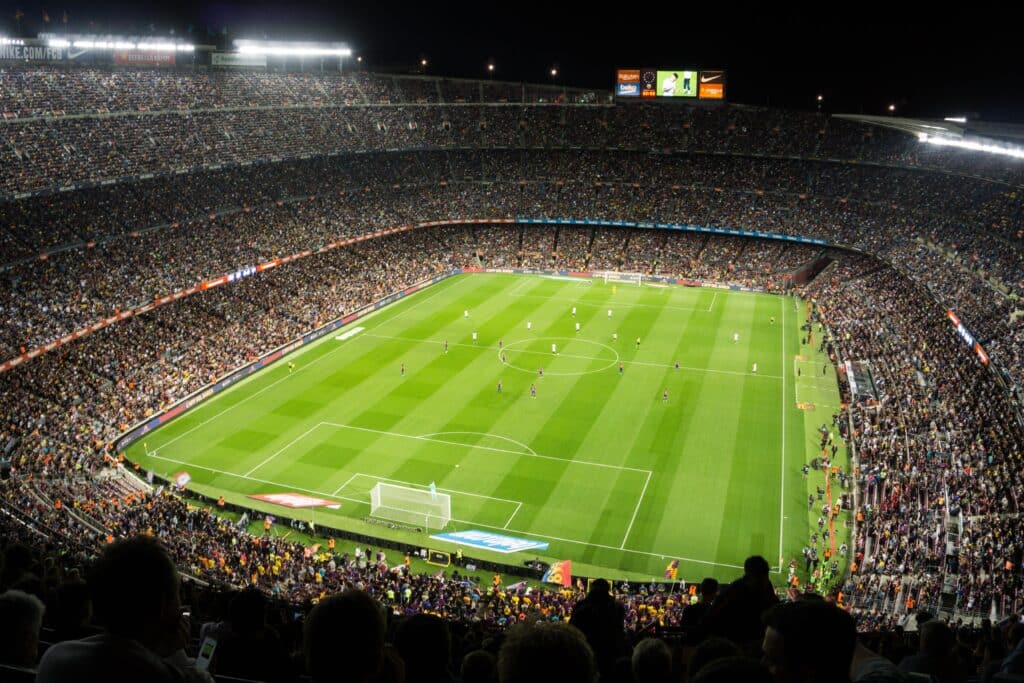Is investing £1 billion in a football stadium worth it? According to American financial giants, it’s a resounding yes. This article explores why global finance powerhouses like JP Morgan and Goldman Sachs are betting billions on European football stadiums. Read on to discover how these investments could redefine the business of European football, bridging the gap with their American NFL counterparts.
The Undervaluation of European Clubs
In the world of sports, over 50% of the most valuable clubs belong to the NFL, primarily in the United States. This indicates a certain undervaluation of European football clubs, despite having a larger international audience. Giants in the finance industry have noticed this discrepancy and believe that stadiums are key to unlocking this untapped potential. While NFL teams enjoy both local and global prominence, European clubs struggle to reach similar financial heights, making the involvement of companies like JP Morgan and Goldman Sachs particularly significant.

Transforming Stadiums Into Profitable Cultural Hubs
European stadiums often remain empty except for weekly matches. Investments are being directed towards transforming these into multifunctional cultural and entertainment centers that can generate much larger profits. For example, Tottenham Hotspur’s new stadium cost approximately £1 billion, financed in part by £637 million from the Bank of America Merrill Lynch. The stadium is already set to host concerts and NFL games, turning it into a year-round money-making venue.
Notable Stadium Revamps in Spain and Financial Backing
Famous football icons like Camp Nou and Santiago Bernabeu are also undergoing significant renovations. FC Barcelona has secured financing of €1.45 billion for modernization, with Goldman Sachs and JP Morgan among the investors. Santiago Bernabeu’s renovation, with a total budget of €925 million, is expected to increase annual revenues by over €140 million. Even pop star Taylor Swift has announced a concert at the venue, illustrating its transformation into a multifunctional space.
American financial expertise in stadium investments appears to be making its mark on European football. This fresh influx of capital and business acumen may be precisely what European football needs to keep pace with its American NFL counterparts and unlock new levels of profitability. Will this be a game-changing moment for European football? Only time will tell.














